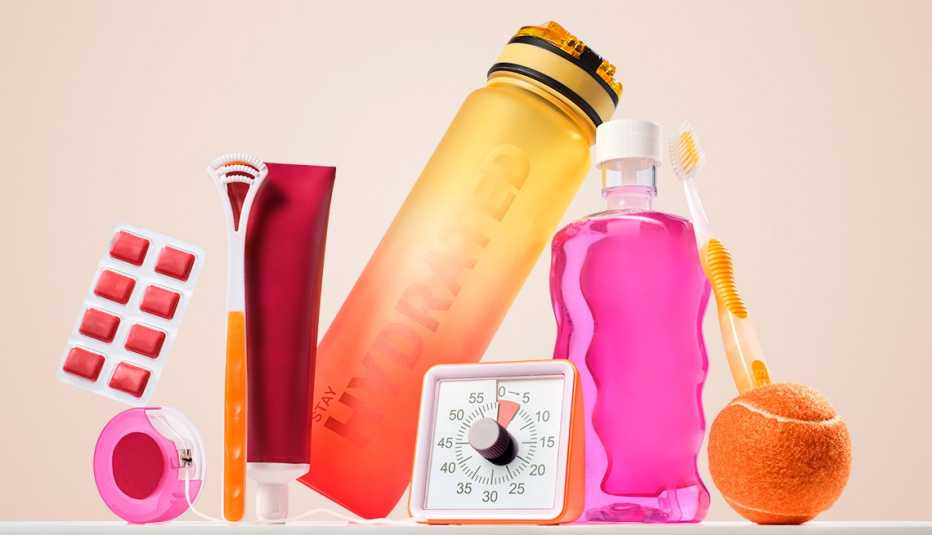Staying Fit


The pandemic has been tough on our teeth. One 2021 survey from the American Dental Association found that more than 30 percent of dentists said their patients had more cavities and gum disease than before the pandemic. That means many of us are playing catch-up at home. So we asked the experts for their best do-it-yourself tips for caring for older teeth and treating common tooth-related problems.


AARP Membership— $12 for your first year when you sign up for Automatic Renewal
Get instant access to members-only products and hundreds of discounts, a free second membership, and a subscription to AARP the Magazine.
1. Issue: Arthritis or shoulder problems
The answer: Rig up your toothbrush
If you have mobility or dexterity issues that make toothbrushing difficult, the solution can be as simple as switching to an electric toothbrush, which has a wider handle and does a lot of the work for you. But if you are more comfortable with an old-fashioned toothbrush, try this trick from dentist Joseph M. Calabrese, clinical professor and director of geriatric dental medicine at Boston University. “Slice into a tennis ball on opposite ends and feed the toothbrush handle through. When you brush, hold on to the tennis ball,” he says. (Wrapping a washcloth, or anything that will thicken the grip, around the handle will also work.)
2. Issue: Bleeding gums
The answer: Brush longer
If your gums bleed when you brush, it usually means there is plaque buildup on teeth that is inflaming the gums. Bleeding gums don't just mean potential tooth loss; the underlying inflammation increases your risk of health issues including heart disease and Alzheimer's. A full 68 percent of adults age 65 and older have gum disease, according to the Centers for Disease Control and Prevention. The answer: Brush at least twice a day for at least two minutes (the time it takes to listen to Queen's “We Will Rock You"). Use floss or a small interdental brush to reach in between teeth once a day, and use an antibacterial rinse after cleaning your teeth.
3. Issue: Receding gums
The answer: Give yourself a tooth massage
If your teeth look longer than they once did, it may be partly because you're brushing too hard. “People might think their teeth feel dirty or they haven't been to a dentist in a while, so they brush hard — which causes inflammation, and gums begin to recede,” explains Lisa Thompson, a dentist and program director of the geriatric dental fellowship at Harvard School of Dental Medicine. Use a soft-bristled toothbrush and imagine massaging — not scrubbing — gums.


































































More From AARP
When Dental Implants Go Wrong
What to know before you get implants — and how to watch for symptoms of infectionKeeping Teeth Healthy for Longer
Simple tips for heading off the common dental problems that come with age